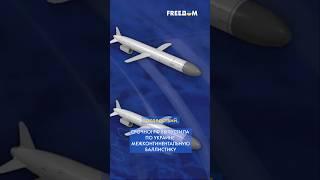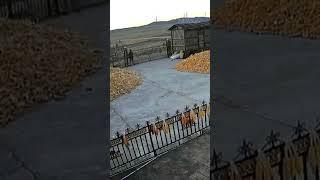
Boat Hull Material Test - Which Breaks First? - Ep. 319 RAN Sailing
Комментарии:

You need to watch the sap content in pine,, not so bad witth the spruce. I like larch, but not much in Sweden.
Ответить
Thanks for posting and sharing.
Ответить
I am not a person who has any such technical knowledge whatsoever. But I wonder if one could build his yacht with wood and have it somehow coated with aluminium or steel at least in the parts of the hull. Would that be possible? It may be a very expensive idea, but if cost was not an issue, would that solve all the security issues?
Ответить
Johan: I am a retired engineer. Please don't procede with this experiement. It will lead you to a wrong conclusin. In fact it is unneccessary. Characteristics ob building materials are well documented and are readily available on line.
Cutting the test pieces heights to obtain equal weight of test strips is wrong. The stiffness of a beam is determined partly by its modulusd (how much force it takes to compress, stretch, or shearthe material in pure eleastic mode. However the area moment of inertia is a far larger factor because that varies with the fourth power of the depth of the beam times the width. That is why the aluminum sample appeared stiffer than the steeel.
Please talk to your naval architect. He should specify what to use for his design. He can explain what I have said and demonstrate it in a manner that you can understand.
Sincerely, Lou Messer, San Diego, CA USA

Not nerdy actually very educational ! Thnx keep up the good work 😊
Ответить
These were not "scientific tests", but they were tests that would amuse anyone (scientists included). 😊 👋
Ответить
Good review
Ответить
This is a great primer video thank you!
There are a couple of things that I might note from these tests that are very important to consider however. For comparative testing of the strength to weight ratio it might be more informative if you tested the same cross sectional dimensions for all samples. For simplicity in calculation, each sample should really be the same length as well. During testing, the samples should be oriented in the same way (rectangular long axis vertical or horizontal) during each test. The comparative strength of the materails can then be directly compared in a deflection per unit weight measurement. This method would allow you to eliminate the geometric variables (ie: the moment of inertia of the cross section) from the results thus allowing for a direct comparative strength. You would then be able to calculate the force (in this case a mass) required to deflect a fixed distance / total mass of the sample. In engineering terms this would be a measurement of the comparative flexural modulus of these materials. This is a direct indicator of the ability of the material to resist bending. Extend this test to the breakage point and you have a measurement of the ulitmate strength of the sample. On another note, testing with the laminations under tension might help eliminate the problem of delamination in the bond layer.
Finally, I just got back from the Annapolis boat show and Lyman Morse was exhibiting a strip laminated (and quite extraordinary) 48foot sailboat. They were using an inner linear layer of cedar about 6 to 8mm thick epoxy bonded with 45 deg x 45 bias layers of fir. They left the cedar inside with a layer of epoxy and glass as the interior hull finish. With the outer glass and gel coat layer, the overall hull skin thickness in was around 20 to 25mm. It was a really nice looking boat inside and out and I couldn't help but think about your build when talking to them. I am really looking forward to following your efforts here.

As the Myth Busters said “ The difference between screwing around and science is writing it down “. 😂 Great episode!
Ответить
I am NOT a nerd!!! I'm an old sailor who spent a life working in quality control and engineering departments. I usually enjoy all your videos. Some are good, some are really great, some are informative and interesting, but, I really understand this "testing video"! I did stuff like this my whole life! Ha Ha Ha.......and I loved it! You guys are great.....You sir, are quite the intelligent and humble fellow......on second thought......guess I am kind of a nerd!!!!!
Ответить
Another interesting timber is paulownia next lightest timber after balsa.
Ответить
Western Oregon was once covered in Douglas Fir forests and we still enjoy a large number of these beautiful trees hence Oregon Pine! Old homes in Portland (and elsewhere) have beautiful floors out of Douglas Fir. The grain is fabulous.
Ответить
Its a real learning experience to watch your steps in building the new RAN. Thanks for sharing.
Ответить
Nature very rarely makes mistakes, and takes thousands of years to evolve and perfect a structure like timber.. There's just something magical about wooden boats.
Ответить
composite strip planking is interesting and love watching the videos you make. You are in essence a practical perfectionist and I cannot wait to see the finished hull floating in the water. Laminations are terrific engineering strength builders as you know.
Ответить
Plywood strips laminated? Great vid, cheers.
Ответить
As soon as you turn steel or aluminium into H or T beam, it wil instantly outperform all the wood.
Ответить
For me it was interesting - thank you very much!
PS One of the most crazy stories about the steel sailboat and collisions that I know is the Gringo story. Yacht run down by the ship. Not sure if the aluminum could survive that not even taking about other building materials.

loved the video. Very interesting to me. Sorry to say my wife wouldn't watch it. Her loss.
Ответить
you say not scientific, but it is, its field (barn!) science and people should do it more often. sure it not high precision or totally comprehensive but for the purposes you'r testing for its spot on. And this way you get a strong personal feel for and confidence in the materials - you're going to be working with it (for a bloody long time!) and trusting your families lives to it. Good job thanks
Ответить
volume of each material used is different. use the same thickness of wood used in Al & Steel. Strength of Al & Steel is higher than wood + fiberglass
Ответить
A very nice video! Sorry I’m late to the party… had too many boat projects to complete before winterizing in Boston. Following you for years with my Contest 43-44, started in the Med, Caribbean and now at home in Boston - almost a twin sister to RAN II… The materials testing was interesting but maybe did a little injustice to the metals. For example, you could position the metal bars vertically and see different results, or use a metal tube or square extrusion in the same weight (as weight is the common denominator for this test…). It is also a matter of intended use, If looking at the frame/superstructure or hull/deck materials - the needs are different. I’m an engineer so as nerdy as you can imagine 😊. Regardless, I’m drafting the early stage core plans for my own DIY boat, if you like to share ideas etc. Thanks for the great super pro show! —Nitzan Sneh, s/v GDY-Kids
Ответить
Bending and breaking are very different... You didn't try composite-too expensive?
Ответить
Puncture wise, to me steel and aluminium wins hands down. So the question in my mind is which will be my best bet when sailing into a ship container floating unseen in a seaway with 6-8 ft swells. Or a piece of timber that floated out to sea from a river, or a reef that was not in the charts.
Ответить
red cedar strip plank, single layer running longitudinally, sheathed with glass and epoxy, it’s well proven and used a lot for custom builds in New Zealand, my 35 footer is 30 years old and the hull is solid,
Ответить
Interesting tests! But wouldn't it be more useful to compare price per square meter instead of cubic meter? The hull is in some way a flat piece foldet to shape, not a block.
Ответить
Have enjoyed your videos. The editing has always been good. Same here.
Ответить
Are the sawhorses spread the same distance as the ribs in the boat?
Nice show. Thank you 4 sharing 🙂

good choice. My strip plank west. red cedar epoxy fiberglass boat was struck head on mid ocean by a 300 meter cntainer ship. And tough badly damaged never took on water. Broken mast, dislodged rudder, huge bash in the hull, no water. For boats of this size is the strongest and safest of all. Hopefully your boat will not sink if it floods. Monohulls sink, multihulls often can not. Think about that.
Ответить
engineering 101: a beam that has the same crossectional aea but is twice as tall is 8 times as strong. weight hardly matters. Test for crossectional strength and heigth first translate to weight later. Otherwise your tests will be wildly misleading.
Ответить
Many marina's in the U.S. no longer will rent slips to wooden boats (i.e. wood boats covered with fiberglass), your video showed these boats are potentially just as strong (the real reason they wont let in glass over wood boats is they want the new expensive boats with customers with deep wallets that don't complain"....then here is the insurance industry that also doesn't want to insure glass over wood boats because of wood rot.....
Ответить
To him everything seem so easy just so amazing man
Ответить
Tjena Johan,
Nice test man. Sandwich structures have a tendency to perform better.
One commment about your test though. To really put the materials under the same rule you must need calculate the inertia of the samples. And it's very sensitive to the thickness of the material. For example, if you mantain the material and double the thickness the resistance will increase by a factor of 8. So, to get how much your samples really support you should rate it by its inertia.
I can help you with this calculation if you want. Just send me a message (I live as well). 😃
MVH
Paulo

I like the way you tested all the different materials. It gives you a lot of information for you use to make your mind up. Keep up the great work you both are doing.
Ответить
Have you looked at any of the South American variety of wood available????
Ответить
You’ve highlighted a key issue with cored composite laminates. If the laminate is not well designed then it will be next to useless
Ответить
Douglas Fir is called Oregon pine in Australia too
Ответить
Lou at Bristol Shipwright building Evelyn has eluded to using a high density plastic for for frames as they are strong but flexible where needed, not sure if they are any cheaper ??
Ответить
Thick and light beats thin and heavy!
Ответить
Fascinating!
Ответить
There is Pine wood in the NWst but is a different tree from Douglas
Ответить
❤ IN OR and I found no such pine but loads of Dougie first.
Ответить
He means well, and makes a nice presentation BUT, no test of marine grade plywood? Also, slowly applied bending/breaking forces have much less relevance on a boat than suddenly applied rupture forces (as when you go on the rocks!) Sorry.
Ответить
Prices are so regional. If shipping was not an issue I would love to trade. I am in Northern California Spruce is prohibitively expensive here, $25 per board foot (BF). I can get clear western red cedar for $1.25 a BF. Douglas Fir is about $6.00 BF.
Ответить
interesting test
Ответить
It's smart you test the materials.
Ответить
This was good information and your video quality is great I am enjoying this series
Ответить
Terrific episode. Thanks for posting.
Ответить

























